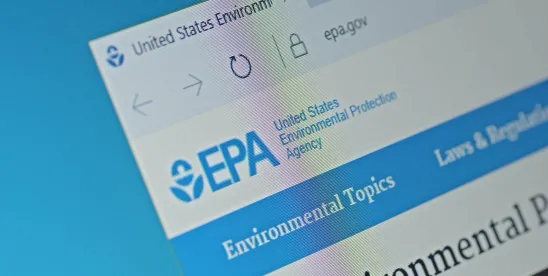David Uhlmann, EPA’s head of the Office of Enforcement and Compliance & Compliance Assurance (OECA), the headquarters office responsible for setting enforcement policy, announced that the policy was intended to ensure greater consistency of enforcement actions across all EPA regions and to direct which programs should take the lead on certain matters. Typically, enforcement matters, whether they be criminal or civil, are handled in various EPA regions but in certain instances, OECA is the lead office. This new policy is designed to provide guidance to enforcement personnel as to what factors that EPA considers when evaluating whether to handle a matter civilly or criminally. The policy is detailed in a memorandum entitled “Strategic Civil-Criminal Enforcement Policy” released on April 17.
While this memorandum is intended for use internally, as a publicly available document, it also provides greater clarity to the regulated community as to when EPA may consider criminal enforcement up to and including time in jail.
Policy Background
EPA typically pursues violations of environmental laws that result from egregious or knowing and willful misconduct through criminal enforcement. The most obvious examples are open fly dumping, an intentional unpermitted discharge of a contaminant to a waterbody, a failure to report and appropriately address a release, and intentionally submitting false information in required reporting records, such as Discharge Monitoring Reports. Other types of violations have sometimes been the subject of criminal enforcement as well, including knowing failure to take steps to correct an ongoing violation and management’s willful failure to adequately train and supervise those with responsibility for environmental compliance.
Historically, EPA decides whether to address a matter through criminal or civil enforcement on a case-by-case matter driven by the facts and circumstances in each situation. Sometimes, it is a close call.
Policy Specifics
Highlights of the new policy:
- The civil and criminal enforcement programs must collaborate on the development and implementation of EPA’s national and regional priorities, including the National Enforcement and Compliance Initiatives (NECIs) and regional strategic plans.
- EPA will enhance case screening to promote fairness and consistency and robust discussion of what enforcement option it should use to address violations, including whether to initiate parallel proceedings and continued coordination to ensure its initial case choices protect public health and the environment.
- EPA will improve case management by better tracking case screening, sharing information about violations, and providing ready access to compliance histories and case developments, while maintaining enforcement confidentiality.
- EPA will update training programs to ensure effective partnership between civil and criminal enforcement offices, including to train on this policy; address factors to consider in deciding whether to pursue criminal, civil, or administrative enforcement; and discuss best practices for sharing information and pursuing parallel proceedings to prevent case delays.





 />i
/>i

